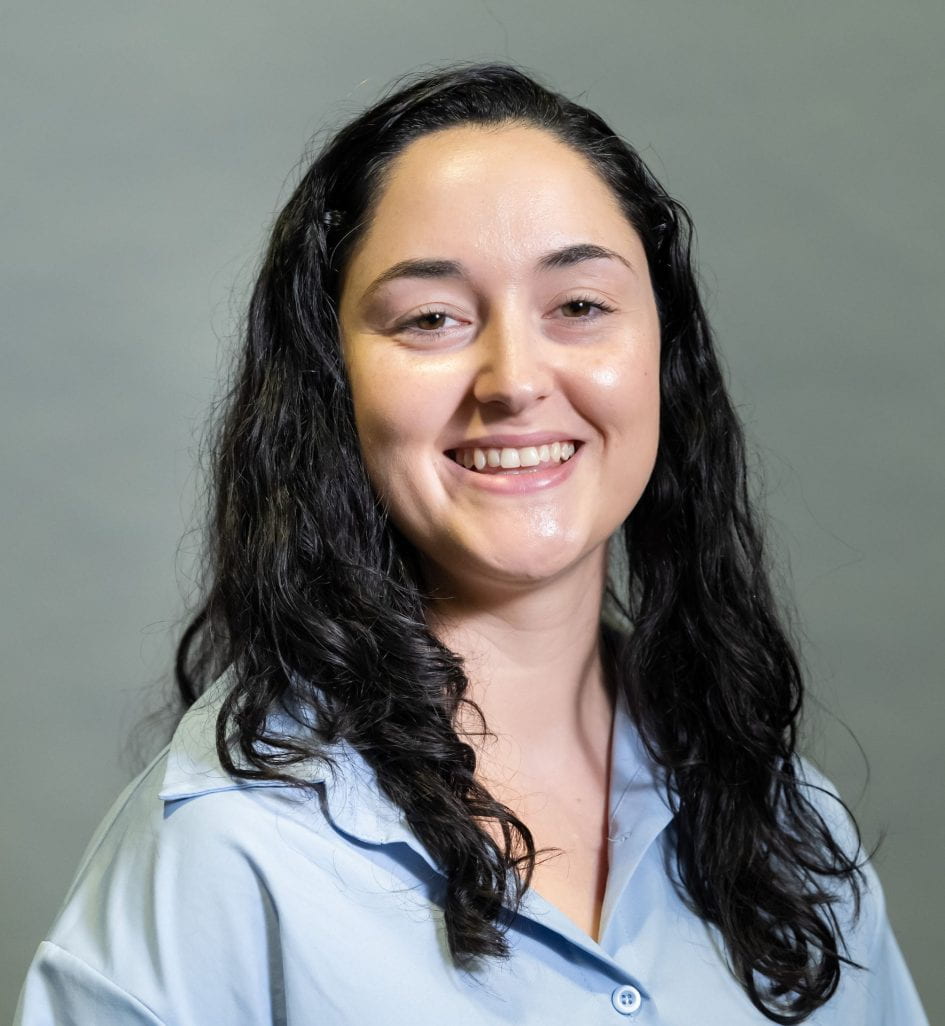Like many who enter the gerontology field, Brittany McFeeley was drawn to studying aging because of a personal experience: As a child, she watched her grandmother suffer with Alzheimer’s disease. She is passionate about research, specifically any studies that build the knowledge base about dementia and Alzheimer’s.
“I’ve always had a curious mind, and research scratches that itch,” says McFeeley, a second-year gerontology doctoral student.
But summer experiences working with community agencies—a part-time job with the Gerontology Institute’s Center for Social and Demographic Research on Aging (CSDRA), which led to an opportunity to help a local agency write grants—opened McFeeley’s eyes to the Council on Aging world and its opportunities for making an impact.
CSDRA Director Caitlin Coyle connected McFeeley with Emily Williams, director of the Bridgewater, Massachusetts, Council on Aging. Williams was looking for help with applying for several grants, and McFeeley had grant writing experience from an earlier research assistant position.
Together, Williams and McFeeley wrote two grant proposals and both were funded: a Mass Cultural Council grant for $2,500 and a state Executive Office for Elder Affairs grant for $200,000.
The Mass Cultural Council grant will help fund a multigenerational dance festival at the Bridgewater senior center in the summer of 2024. “Emily wanted to do something fun for a day and get a lot of the community involved,” says McFeeley, who drew on her two decades as a dancer and dance instructor to suggest the festival. “We were brainstorming, and I thought it would be cool to bring in all different kinds of dance performances and hold classes.”
The second grant was a joint effort with Williams and Darlene Regan, director of the Halifax Council on Aging. The grant will fund a pilot dementia day program for the towns of Bridgewater and Halifax, Massachusetts. The goal is to run eight consecutive six-week programs for older adults with mild to moderate dementia, giving as many people as possible the chance to experience the program.
“Brittany was delightful to work with,” says Williams. “It was is if she read my mind on what the end result would look like during the grant-writing process. She was also keen on using her research skills to pull information and statistics needed to complete our submissions.”
“It feels nice to have gone two for two,” McFeeley says of the grant proposals’ success. “I gained invaluable grant-writing skills by partnering with Emily.”
“A year ago, I wouldn’t have thought I’d be able to work on something with such a significant impact on real people.”
Brittany McFeeley, gerontology doctoral student
More importantly, the experience opened her eyes to more gerontology career path possibilities. With her pull towards research, McFeeley hadn’t considered community settings or Council on Aging careers. “A year ago, I wouldn’t have thought I’d be able to work on something with such a significant impact on real people,” she says. “In the doctoral program, we’re learning about theories, and I’ve made an actual impact. It’s really kind of humbling.”
McFeeley appreciates how her doctoral classes hone in on specific elements of gerontology, a nice contrast to required undergraduate classes that cover broad swaths. “Every class in this program has been helpful in building up my knowledge,” she says, including exposure to public policy issues and social determinants of health.
But she’s not ready to say exactly where she wants to head in the field.
“I kind of want to put my hands in all the pots, I’m not ready to silo myself when there is so much in this program to experience.”


January 15, 2024 at 7:30 pm
Very exciting Brittany!
Congratulations on your efforts!
Best,
Debby